April 3-7, 2022
Learn More: Keystone Symposium on Multi-Cellular Engineered Living Systems
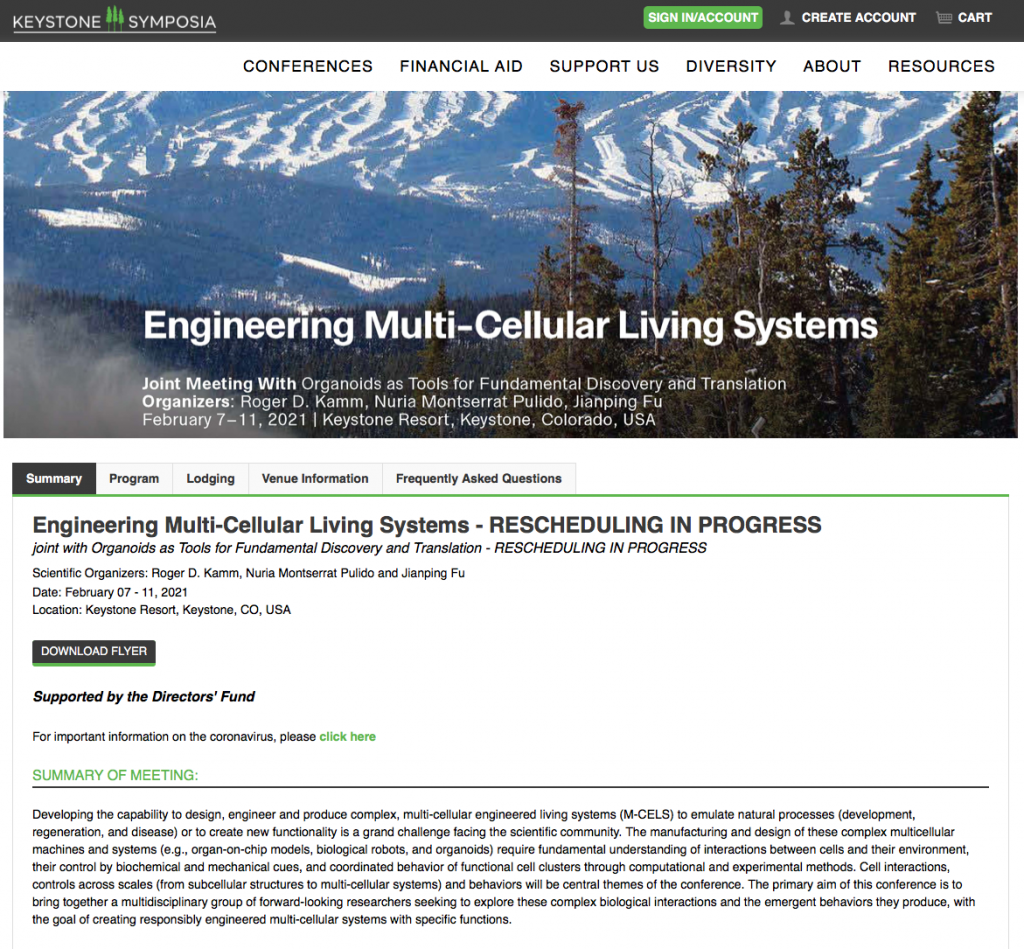
November 8, 2021 at 4:30PM: Welcome M-CELS Faculty Webinar
Join our event on Zoom: Zoom: https://mit.zoom.us/j/94325689745
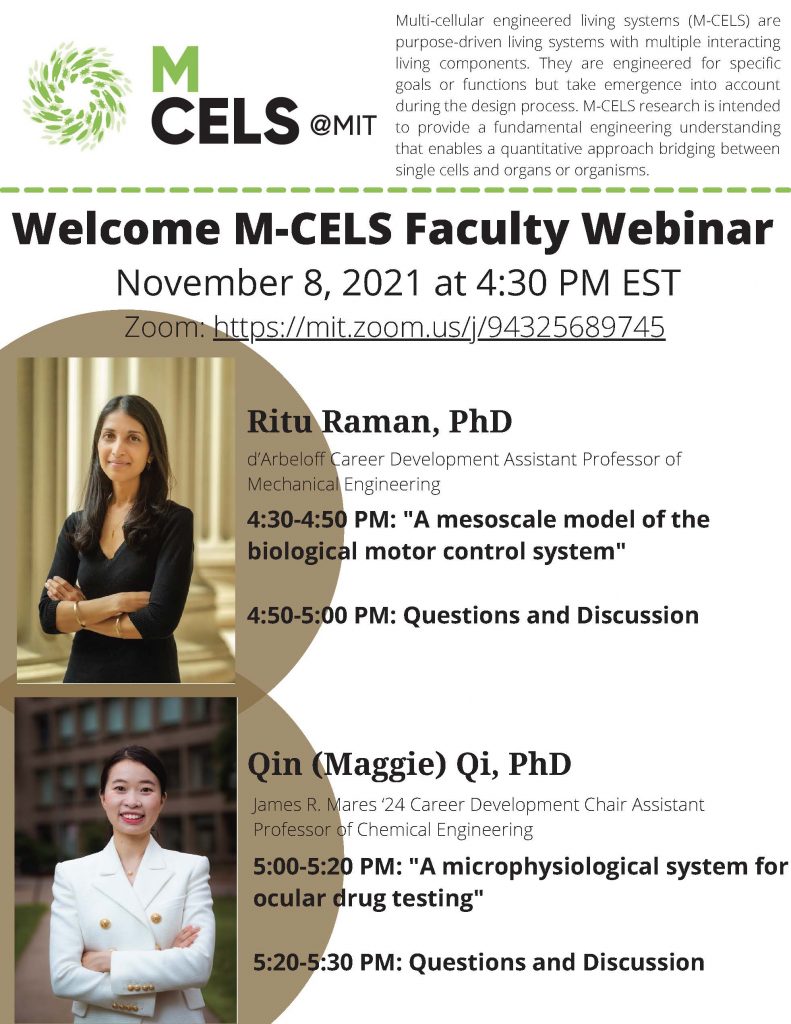
Zoom: https://mit.zoom.us/j/94325689745
June 1-3, 2021
Learn More: NSF Workshop on Multi-Cellular Engineered Living Systems
Virtual
May 27, 2021 (12PM EDT)
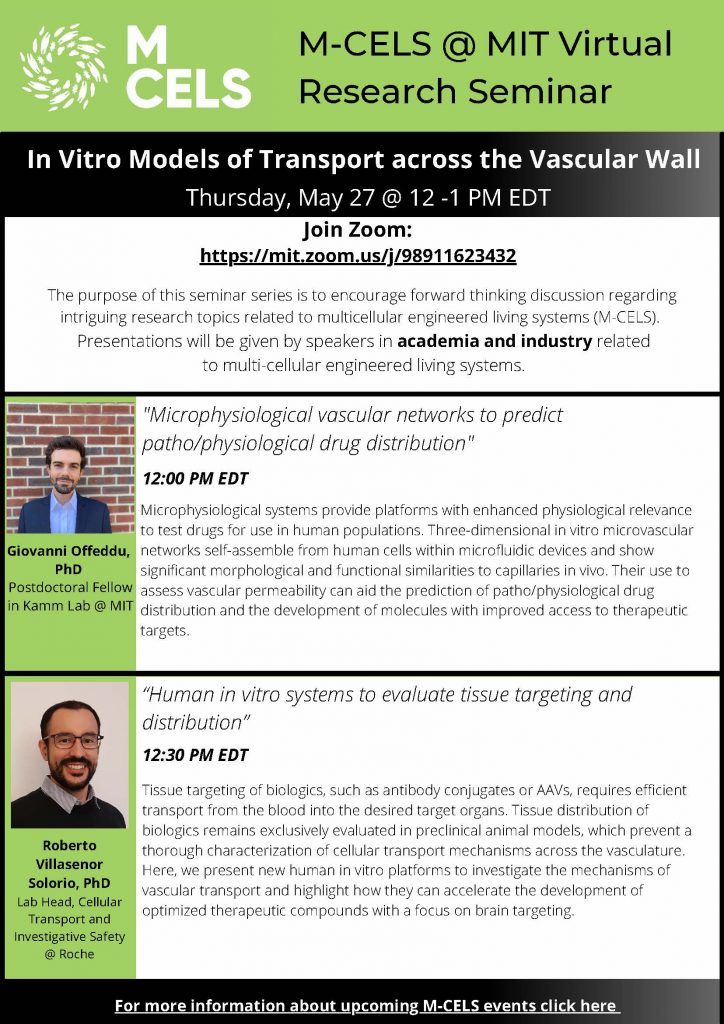
M-CELS @ MIT Seminar
Giovanni Offeddu, PhD – Postdoctoral Fellow in Kamm Lab @ MIT
“Microphysiological vascular networks to predict patho/physiological drug distribution”
Microphysiological systems provide platforms with enhanced physiological relevance to test drugs for use in human populations. Three-dimensional in vitro microvascular networks self-assemble from human cells within microfluidic devices and show significant morphological and functional similarities to capillaries in vivo. Their use to assess vascular permeability can aid the prediction of patho/physiological drug distribution and the development of molecules with improved access to therapeutic targets.
Roberto Villasenor Solorio, PhD – Lab Head, Cellular Transport and Investigative Safety @ Roche
“Human in vitro systems to evaluate tissue targeting and distribution”
Tissue targeting of biologics, such as antibody conjugates or AAVs, requires efficient transport from the blood into the desired target organs. Tissue distribution of biologics remains exclusively evaluated in preclinical animal models, which prevent a thorough characterization of cellular transport mechanisms across the vasculature. Here, we present new human in vitro platforms to investigate the mechanisms of vascular transport and highlight how they can accelerate the development of optimized therapeutic compounds with a focus on brain targeting.
March 31st , 2021 (4PM EST)
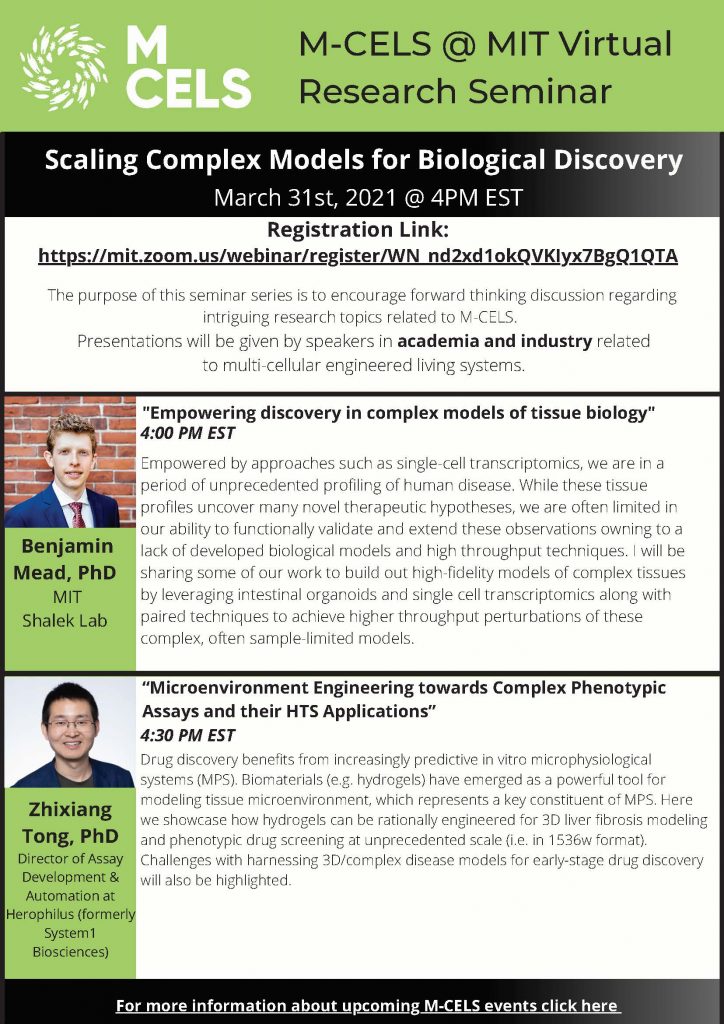
M-CELS @ MIT Seminar
Benjamin Mead, PhD – Postdoctoral Fellow in Shalek Lab at MIT
“Empowering discovery in complex models of tissue biology”
Empowered by approaches such as single-cell transcriptomics, we are in a period of unprecedented profiling of human disease. While these tissue profiles uncover many novel therapeutic hypotheses, we are often limited in our ability to functionally validate and extend these observations owning to a lack of developed biological models and high throughput techniques. I will be sharing some of our work to build out high-fidelity models of complex tissues by leveraging intestinal organoids and single cell transcriptomics along with paired techniques to achieve higher throughput perturbations of these complex, often sample-limited models.
Zhixiang Tong , PhD – Director of Assay Development & Automation at Herophilus (formerly System1 Biosciences)
“Microenvironment Engineering towards Complex Phenotypic Assays and their HTS Applications”
Drug discovery benefits from increasingly predictive in vitro microphysiological systems (MPS). Biomaterials (e.g. hydrogels) have emerged as a powerful tool for modeling tissue microenvironment, which represents a key constituent of MPS. Here we showcase how hydrogels can be rationally engineered for 3D liver fibrosis modeling and phenotypic drug screening at unprecedented scale (i.e. in 1536w format). Challenges with harnessing 3D/complex disease models for early-stage drug discovery will also be highlighted.
January 27th, 2021 (4PM EST)
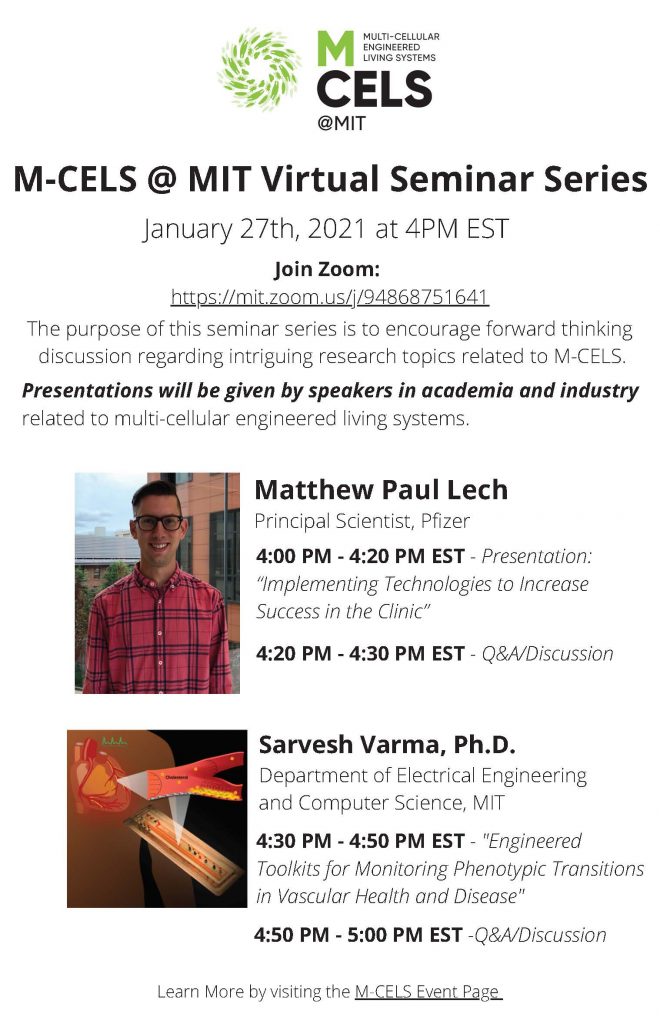
M-CELS @ MIT Seminar
Sarvesh Varma, PhD – MIT-GSK Gertrude B. Elion Research Fellow (Department of Electrical Engineering and Computer Science) at MIT
“Engineered Toolkits for Monitoring Phenotypic Transitions in Vascular Health and Disease”
Human endothelial cells (hECs) constantly experience spatiotemporal variations in external microenvironment (e.g. blood flows), which couple with their intrinsic (e.g. genetic) regulation to define an overall disease-protective or disease-susceptible phenotype. However, current approaches to understand such complex interplay of phenotypic regulators have had limited ability to emulate disease-regulating flows, and to further perturb or monitor hECs within such context. This seminar will present research in engineering physical platforms (e.g. microfluidic devices) for emulating the natural hEC microenvironment; biological tools (e.g. genetic reporters) for defining intrinsic/extrinsic regulators of hEC states; and computational methodologies (e.g. imaging) for monitoring how such regulators sway hECs between health and disease in humans. Such engineered toolkits collectively overcome several outstanding limitations of existing methods, enable discovery of unexplored human vascular biology, and motivate novel strategies for combating deadly cardiovascular diseases in the clinic.
Matthew Paul Lech – Pfizer
“Implementing Technologies to Increase Success in the Clinic”
The drug development process is undergoing an evolution to include more complex models that can improve success in the clinic by better predicting the human response. At Pfizer, we look at many different technologies and systems to meet this need. This discussion will provide an overview of current efforts and a vision of the future in the field of MPS and complex model utilization.
